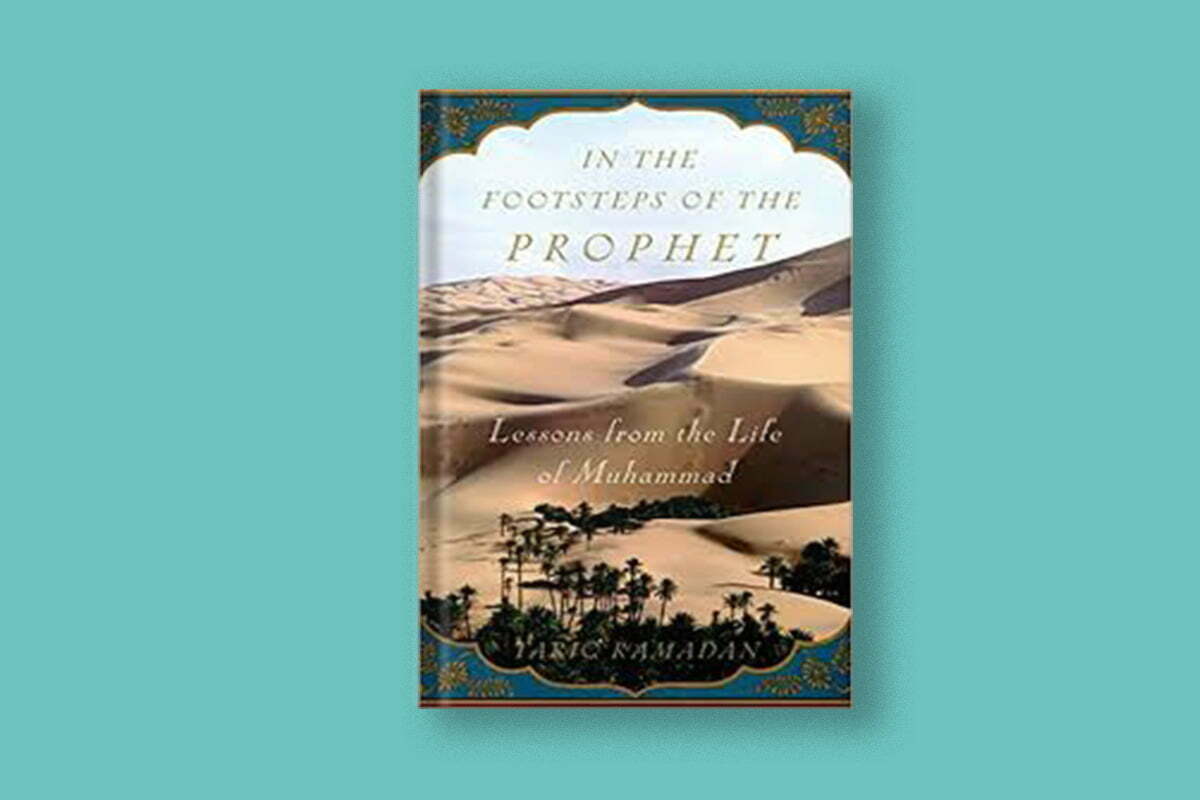Book Name: In the footsteps of the Prophet: Lessons from the Life of Muhammad (s)
Author: Tariq Ramadan
Reviewed by: Sister H
The audience for this book is wide. It doesn’t assume any previous knowledge of the life of the Prophet. It also aids those
unfamiliar with the subject by clearly explaining Muslim terms that are needed in the context, and also avoids using any Arabic words. Having said that, the book is not just written for non-Muslims. The book also speaks to the Muslims, in terms of the spiritual lessons and reflections that can be taken.
The content of the book is a biography that tells the story of a life but emphasizes decisions, revelations, and the spiritual and emotional lessons therein. Tariq Ramadan has skipped many details in the life of Prophet (peace be upon him), but this is acceptable, considering the book is sub-titled “Lessons from the Life of Muhammad“
The simple lessons we can learn from the life of the Prophet (peace be upon him) are very often overlooked. Here Ramadan brings out some very subtle and salient points. For instance building a trench around Medinah in preparation for battle, the Prophet (peace be upon him) who worked alongside his companions was said to have at times invoked God, at others sang, recited poetry and everyone else joined alongside. It’s such a small seemingly insignificant detail, but as if to break the mold of the so serious and harsh personality (that some believers may aspire to). The actions of the Prophet (peace be upon him) demonstrated a lesson, to encourage, and to nurture goodwill among the community.
“Through the invocations, poems, and songs, the Prophet enabled the women and men in his community- beyond their communion in faith and ritual prayer- to commune through the voicing of emotions and the musicality of hearts articulating their belonging to a common expression of the self, a collective imagination, and a culture.”
Other lessons pointed out in the book include humbleness – as in humbling ourselves in front of the “One”. Allah commanded us to learn, but at the same time accept the fact that we won’t know it all.
The Prophet (peace be upon him) was an orphan, Allah sheltered him. For the rest of the life, the Prophet was generous with the poor and needy.
“..Spiritual teaching emanating from these is valid for each human being: never forget one’s past, one’s trials, one’s environment and origin, and to turn one’s experience into a positive teaching for one self and for others. Muhammad’s past, the One reminds him, is a school from which he must draw useful, practical, and concrete knowledge to benefit those whose lives and hardships he has shared, since he knows from his own experience, better than anyone else, what they feel and endure.” [Page 12]
Tariq Ramadan teaches of the Prophet’s generosity, love for his Companions, forgiving and humble nature. He also reminds the reader that following the Prophet’s teaching doesn’t just apply to the essential acts of worship – the teachings are broader than that. We can learn from every aspect of the Prophet’s life – including the seemingly mundane aspects, like the way he treated his spouses [“conversed with her, and expressed his love and tenderness” Page 119.. “he never hesitated to take the time to confide in the women around him” Page 159], how he loved children [“played with them, reaching towards their innocence, which is in its essence the expression of permanent prayer to God” Page – 213] and his instruction to his companion about not wasting water and respecting nature [page 202].
Ramadan concludes with a note to remind us one the most essential of the Prophet’s teaching:
“The Messenger may have left the human world, but he has taught us never to forget Him, the Supreme Refuge, the Witness, the Most Near” [Page 216].
Overall, the book is a light-read. A good read for all Muslims, and non-Muslims alike.




